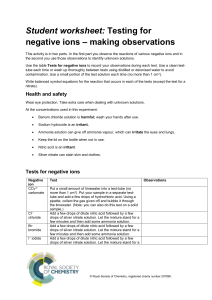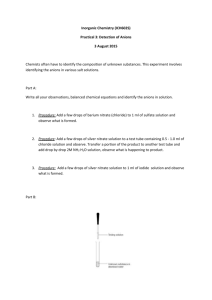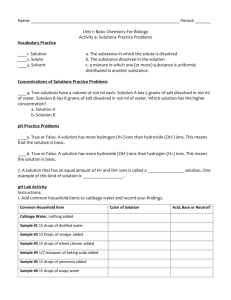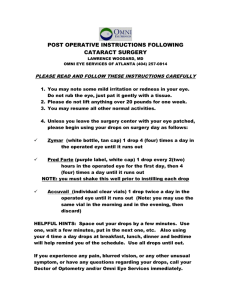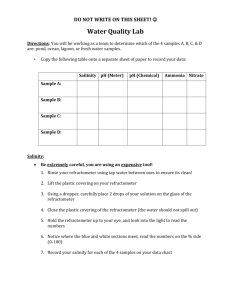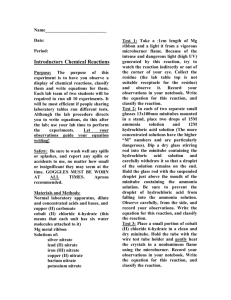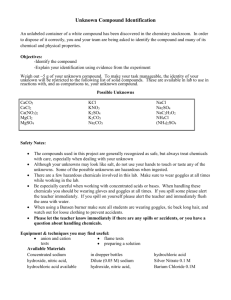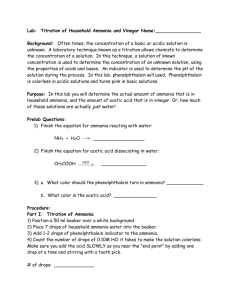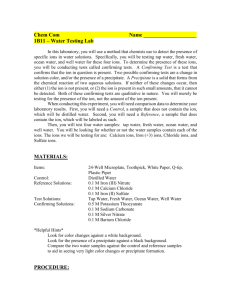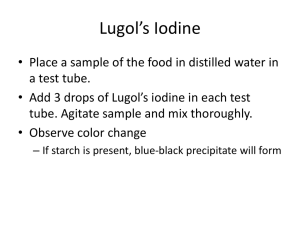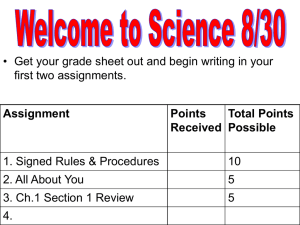Testing for negative ions – making observations
advertisement
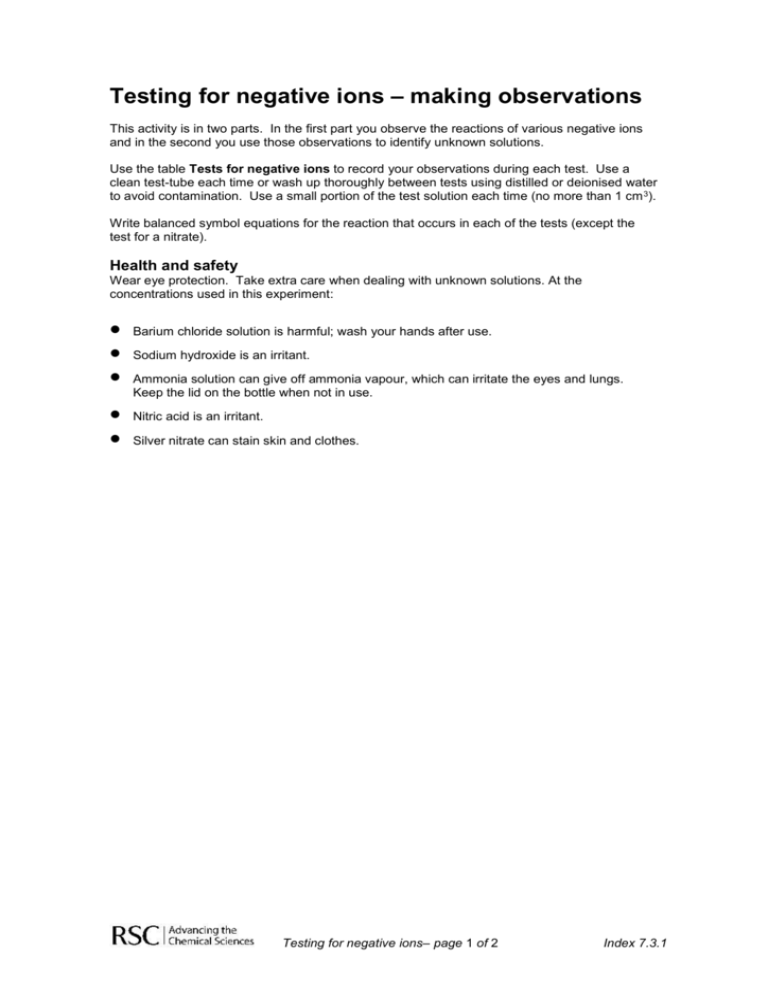
Testing for negative ions – making observations This activity is in two parts. In the first part you observe the reactions of various negative ions and in the second you use those observations to identify unknown solutions. Use the table Tests for negative ions to record your observations during each test. Use a clean test-tube each time or wash up thoroughly between tests using distilled or deionised water to avoid contamination. Use a small portion of the test solution each time (no more than 1 cm 3). Write balanced symbol equations for the reaction that occurs in each of the tests (except the test for a nitrate). Health and safety Wear eye protection. Take extra care when dealing with unknown solutions. At the concentrations used in this experiment: Barium chloride solution is harmful; wash your hands after use. Sodium hydroxide is an irritant. Ammonia solution can give off ammonia vapour, which can irritate the eyes and lungs. Keep the lid on the bottle when not in use. Nitric acid is an irritant. Silver nitrate can stain skin and clothes. Testing for negative ions– page 1 of 2 Index 7.3.1 Tests for negative ions Negative ion Test Observations Cl– chloride Add a few drops of dilute nitric acid followed by a few drops of silver nitrate solution. Let the mixture stand for a few minutes and then add some ammonia solution. Br– bromide Add a few drops of dilute nitric acid followed by a few drops of silver nitrate solution. Let the mixture stand for a few minutes and then add some ammonia solution. I– iodide Add a few drops of dilute nitric acid followed by a few drops of silver nitrate solution. Let the mixture stand for a few minutes and then add some ammonia solution. SO42– sulfate Add a few drops of barium chloride solution and then a few drops of hydrochloric acid. CO32– carbonate Put a small amount of limewater into a test-tube (no more than 1 cm3). Put your sample in a separate test tube and add a few drops of hydrochloric acid. Using a pipette, collect the gas given off and bubble it through the limewater. (Note: you can also do this test on a solid sample.) NO3– nitrate Add a few drops of sodium hydroxide solution and a little aluminium powder. Warm the solution in a Bunsen flame and test any gas given off using red litmus paper. Testing for negative ions– page 2 of 2 Index 7.3.1
